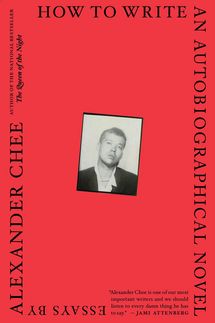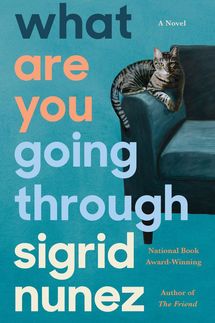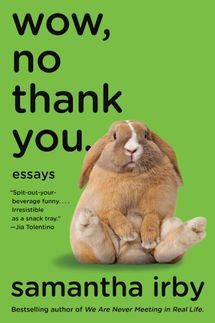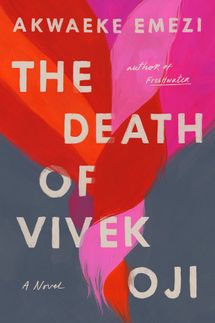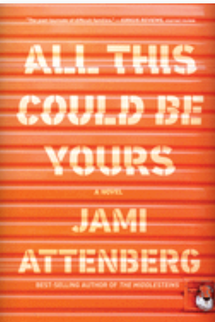
There’s no getting around it: If you want to get your work published, eventually you will have to show it to other people. And those people may or may not tell you what you want to hear. But while it’s impossible to avoid rejection as a writer, there are ways to get used to it. Below, seven writers talk about how they deal with rejection.
Rachel Khong
I just feel really bad about it for a day and then I try not to think about it anymore. I mean, I think that being a writer is just a lot of endless rejection forever. It’s constant and happens throughout your whole career, if you’re lucky. Some definitely hurt more than others. It’s almost like applying for a job or something, where you start to imagine your whole future with this publication and then like … they just don’t want you. But I try to always think about the fact that you really only need one person, either an agent or publisher or magazine or someone, to publish your story. It’s not like you need everybody to love you. And I think, of course, there are the writers that are universally beloved. But that’s always been a reassurance to me — that there will hopefully be one person who gets it, one editor who really gets it, and that’s all you need. You don’t need ten publishers. What would even be the point?
Alexander Chee
Rejection is something that, in some ways, you have to work with as much as you work with language as a writer. It’s the other medium of writing, which is to say: Learning to work with rejection, learning how rejection can propel you forward, whether you’re deciding to get better or you’re deciding to move on — you just can’t let it be an obstacle.
I sometimes ask, Did you learn anything from the ways in which people rejected you about the work itself? There are some things you can listen for in the way that people reject you that tell you that maybe the work does need something — maybe there is something you need to attend to in the story. You’re starting to get the same message back about something from different people who haven’t spoken to each other. And there’s that and then there’s also the realization that if people reject you, and they simply don’t understand what you’re doing, then no matter what you might want — maybe you just want to be published in this particular place because your ego wants it.
You have to let go of what your ego wants and understand what you’re looking for, the readers who understand you and get excited about the work. That’s where any momentum for a career comes from: finding those people. And you end up with something, a lot of times, that’s better than what you set for yourself as a dream. I think one of the major things that can happen, if you stay in it long enough, is you start to see how small your dreams were.
Sigrid Nunez
Rejection is an enormous part of a writer’s life. It’s just the way it is. There are so many people out there wanting to show and sell their work. It’s easy to get lost and very difficult to get attention. As you would expect, I found it very discouraging, but I was also prepared for it because I knew writers. I knew what the life was like, and I knew that the only thing that you could do, if you really wanted to do this, if you really wanted this life, you had to accept that it came with a certain amount of rejection. And if you kept at it, that could change. Your other option was to quit and say, I can’t take all this rejection.
It’s part of the job. There are some writers, certainly, for whom, right out of the gate, something wonderful happens, and they continue on that path. But for the most part, I’ve known a lot of writers, and I knew a lot of writers when I was young who were also young writers, and it was a common experience: the incredible difficulty of trying to get attention. And then also, because I do teach, now I have taught for a long time, I have all these students and former students who are going through exactly the same thing.
Emma Straub
I don’t take things too personally if they’re about my book. But especially now, after running the bookstore for three years, I understand more than ever that every book is not for every person — and that every person is not for every book. And there’s nothing wrong with that. There’s nothing wrong with someone reading my book and thinking like, Ehhh, that’s not for me. That’s fine. That’s fine! I hope I can help them find a book that they do want to read. There are readers for every book. And the trick of all of this is figuring out how to get your book into the right hands, into the hands of someone who will find it funny or moving or meaningful, or in some other way important or pleasurable. That’s what matters. It does not matter to me that everyone likes what I do.
Samantha Irby
Sometimes it’s about the quality of what you wrote, right? But other times, it has to do with factors that are maybe beyond your control. First of all, because of what I do, I’m like, “Listen, I do a niche thing. Not for everybody.” As a marginalized person, I’m already not for everybody. And then what I do, like writing about poop all the time, or sex or whatever, isn’t for everybody.
I constantly have to remind myself: There are trends and people who decide things. There are marketing people who, like, know what gets ratings and who buys what. All of those people get to weigh in on this thing you made. So even if the thing you made is brilliant, they’re like, “Well, you know, memoirs from 40-year-olds from the Midwest or whatever don’t sell, so we’re not buying yours.” They’re never gonna say that to you.
Most people don’t tell you why they don’t want your thing. They just say, “Oh, thanks, but no thanks.” I find it soothing to think about how much of this is out of my control. The only thing that I can be sure of is what I’ve made. I wrote this thing; it made me laugh; I’m happy with it. Why they didn’t buy it, I’ll never know.
Akwaeke Emezi
Before we did the two-book deal with Riverhead, there was this residency in Germany that I wanted more than anything. I wanted it so badly. They would pay for you to live there for a year, and they gave you this apartment, and they gave you a stipend. Two of my friends had done it before, and I was like, I want this. It symbolized everything — you know, financial and housing stability, I would get to travel, I would get to live in a new country. I wanted it so badly, and I worked so hard and I did not get it. And I remember being so sad about that, but then a few weeks after I found out that I didn’t get the residency, then the Riverhead deal happened.
That year in which I was supposed to be — in my mind — in Germany, I ended up moving to New Orleans, living between here and New York for a couple of months, then buying a house here and building a whole permanent life. So one of the things I’ve learned is that, a lot of the time, rejections are like doors that close because there’s a path somewhere else that I’m meant to be on. I don’t really feel bad about rejections anymore because I’m like, Okay, that’s cool. I’m not supposed to go there. I can’t wait to find out where I am supposed to go, because that’s going to be awesome in a way that I didn’t even imagine.
Jami Attenberg
My first three books did not do particularly well, and I actually got dropped by my publisher before my fourth book. I genuinely thought that my career was over. It was the thing that I loved the most in the world and continue to love most in the world, and I was very sad. I had a fourth book that I sent out to my publisher, and they said no. And so then we went out with it again, and, fortunately, somebody decided to take me on. Then my career sort of got better after that.
I was also marketed differently after that. I think a thing that people have to be really aware of is that — and, hopefully, it’s changing and evolving — there are times, certainly, when publishing likes to put you in a box. And there are all kinds of boxes, but whether or not you are supposed to be in that box or not is a different story. And I don’t think that readers really enjoy a bait and switch, you know? I don’t think they like to be marketed to and that it’s not that kind of book.
Interviews by Kelly Conaboy, Gretty Garcia, Amanda Arnold, and Claire Lampen.
These interviews have been lightly edited and condensed for clarity.
If you buy something through our links, New York may earn an affiliate commission.

